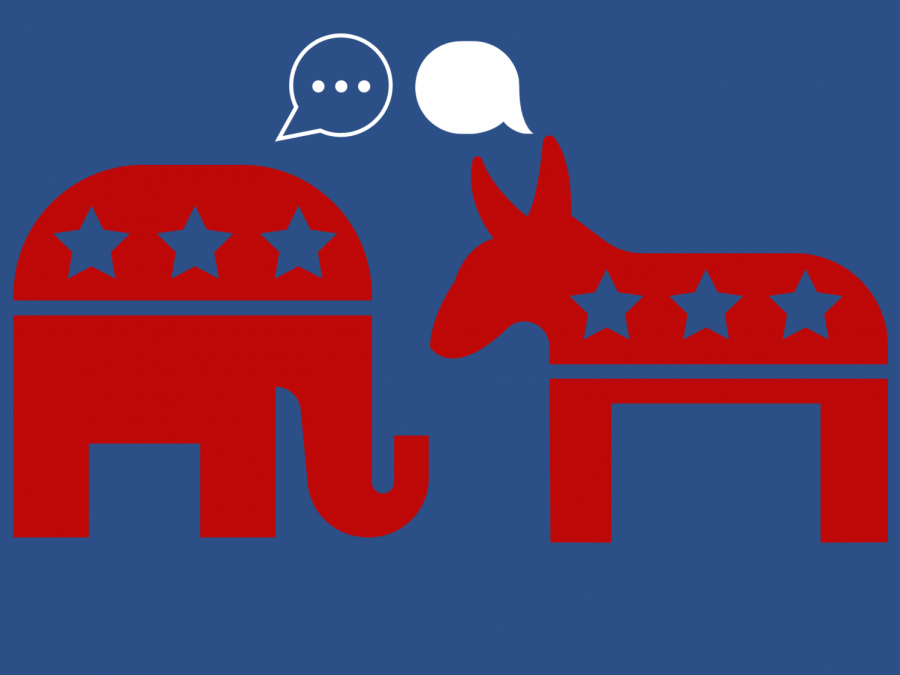Opinion: Learn to use social media to advocate in a positive way
Photo illustration by Eitan Malkus
As talking about politics on social media becomes more common, we need to learn how to go about it in the right way.
February 9, 2021
During my short breaks in a long virtual school day, I usually click on Instagram or TikTok to take a much-needed breather from long, strenuous classes, but recently, my feed has been filled with various hateful and vicious posts to the point that it becomes suffocating.
Throughout the past couple of months, social media has become yet another reminder of the striking polarization that exists within our country.
In a tense political climate after an emotional election, people on both sides of the political spectrum have come forward, some voicing support for President Joseph R. Biden, others claiming the election was rigged and many criticizing others and their opinions.
This increase in social media activism began at the beginning of former President Donald J. Trump’s presidency, in which many of my classmates and friends voiced opposition to Trump’s policy decisions. In addition, those in support of the former president were very vocal about their support for him. This created an atmosphere of tense political disagreement.
However, once Biden became president, the tide was flipped, and indeed, those same Trump supporters voiced opposition to Biden’s policies. This continuous cycle on social media only created more turmoil and hatred between the two political parties.
I understand the need to be able to voice an opinion, as I have done so in the past, but being able to have positive and productive conversations between both parties should be a top priority when posting on social media platforms. However, people are likely to feel attacked if you question something they posted.
In addition, many go about questioning others’ ideas or opinions in ways that are spiteful. It is important when questioning others’ opinions to try to understand what they are thinking and why they might think this way before discussing or debating with them because oftentimes people shy away from productive conversations because they believe people won’t listen to them.
In a Pew Research Study, 70% of respondents said that it is stressful to talk politics on social media with someone who they disagree with because people don’t usually post with an open mind to discourse. In addition, people have a hard time admitting that their claim was incorrect or false.
While political posts can be a motivator for political discussions, they can also be a jumping off point for hateful rhetoric. Sometimes racist or antisemitic posts are shared on these platforms which make people feel uncomfortable or targeted.
Posting on social media can also bring light to an important issue, such as criminal justice reform, climate change and immigration. Posts can make an impact on someone and their view on problems existing in our country.
But it is also important to take what people post on social media with a grain of salt. Many people repost aesthetically pleasing infographics that may be visually appealing; however, the information in these posts can be false or misleading.
With all of these measures to take into account, sometimes what is acceptable and what is not can become a blurred line. It is important to remind your friends and family to be mindful of others and refrain from posting anything remotely hateful. Think about asking those important questions like what are you aiming to accomplish by posting that? Is the information in the post truthful? Will others feel attacked by the language in the post?
In addition, in your individual posts, ask yourself these questions as I do before I post. Sometimes I will decide posts are too contentious or conflict inducing for me to post. I would encourage others to ask themselves questions before they post as well to create a more productive social media environment.
Social media activism cannot be characterized as either negative or positive, because there are so many different components. However, it will continue to be an important part of our lives permanently and it is important to learn how to use it in a productive way without igniting hate and misinformation.














